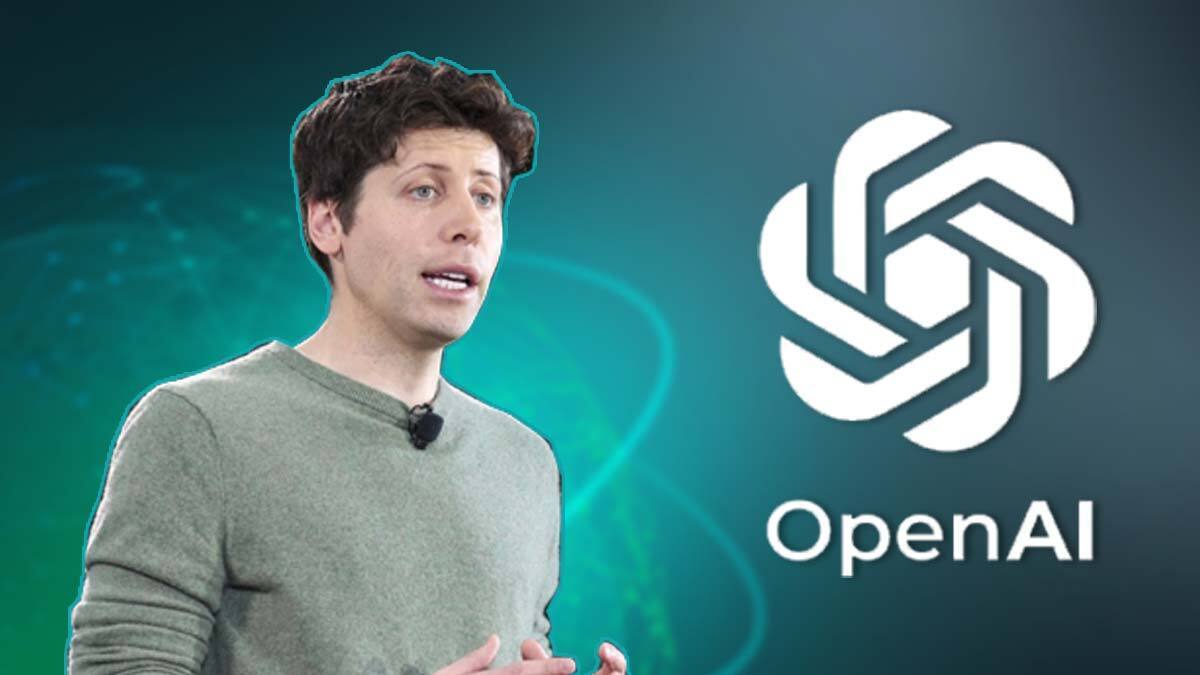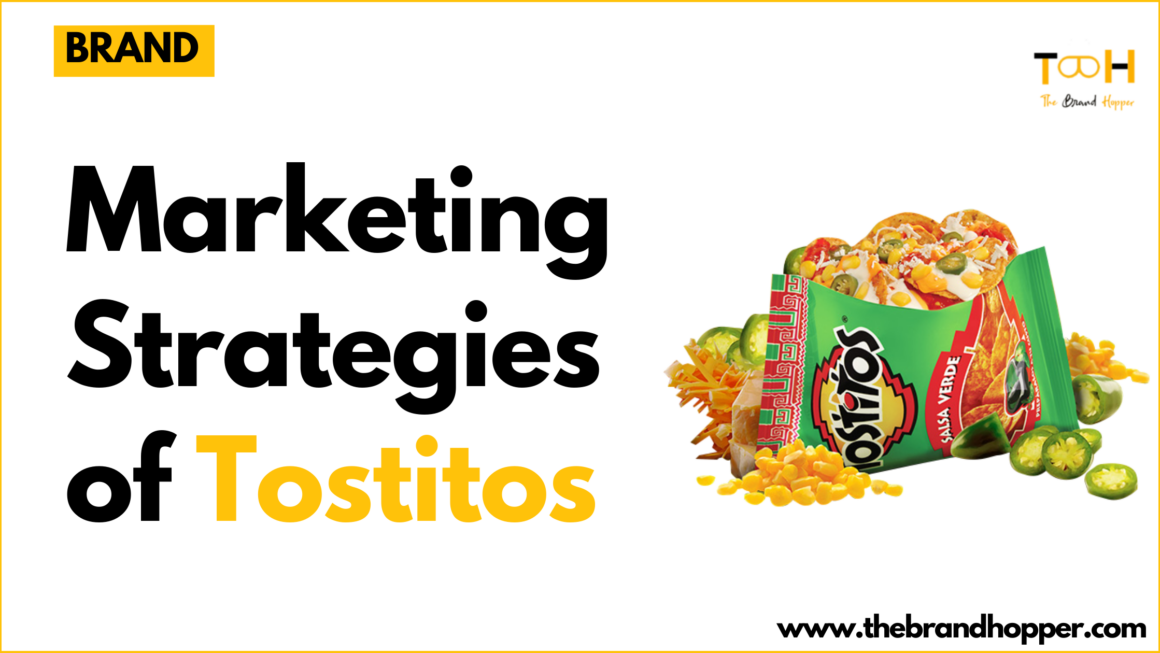When it comes to AI, it’s Sam Altman who has become the face of the revolution. Altman, an entrepreneur and investor, has steered OpenAI from a niche research lab to an $86 billion powerhouse. This transformation is a remarkable tale of balancing commercial success with a social mission, and it positions Altman as a key figure in the AI industry. Here’s how he achieved this feat while navigating the fine line between business acumen and idealistic vision.
The AI Revolution
Sam Altman, Sam Altman, Sam Altman—the name echoes through the corridors of the AI world. Altman is not just another tech executive; he’s a high-minded idealist and a ruthless capitalist rolled into one. His unique blend of vision and pragmatism has been instrumental in OpenAI’s ascent.
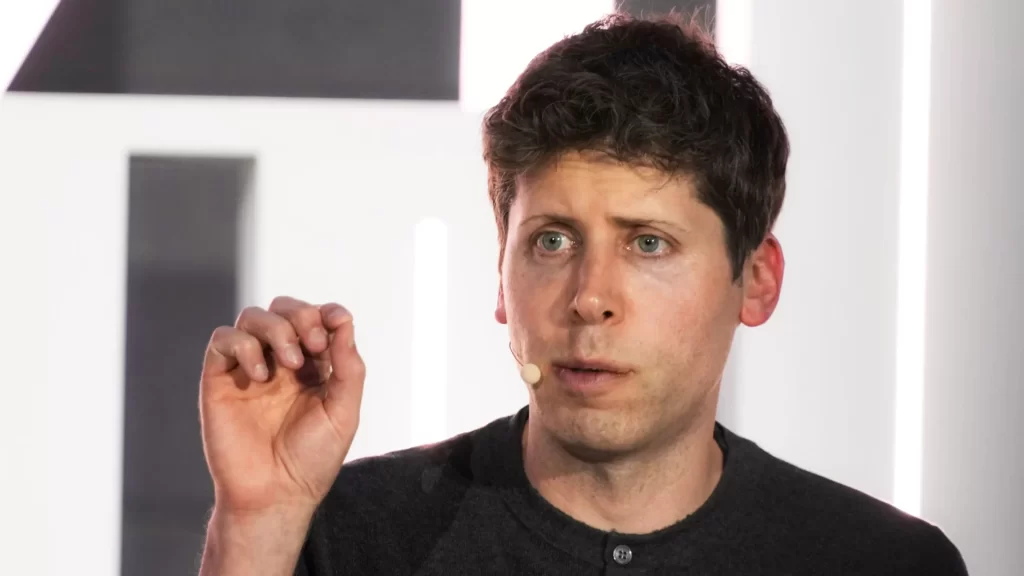
Altman’s Social Mission
“My worst fears are that we cause significant harm to the world,” Altman once remarked, referring to the potential dangers of AI. OpenAI was co-founded in 2015 by Sam Altman, Elon Musk, Greg Brockman, Ilya Sutskever, John Schulman, and Wojciech Zaremba with the mission of developing AI for the benefit of humanity, a stance that is somewhat unconventional in Silicon Valley. The benefit of humanity mandate means that OpenAI focuses on creating technology that can have positive and far-reaching impacts, while also being mindful of the risks.
The founders felt that Google’s monopoly on AI research needed a counterbalance. OpenAI aimed to be this alternative, ensuring that AI development remained open and beneficial to all. Google’s response acknowledged the many contributions to AI from various researchers, emphasizing a collaborative approach.
Commercial Success
In November 2022, OpenAI launched ChatGPT, which quickly went viral for its ability to generate entire essays in seconds. By February 2023, just three months after its release, ChatGPT saw 1 billion visitors. This explosion in popularity catapulted OpenAI from a research lab to an $86 billion unicorn, attracting investments from tech giants like Microsoft, as well as from prominent Silicon Valley figures like Reid Hoffman and Vinod Khosla.
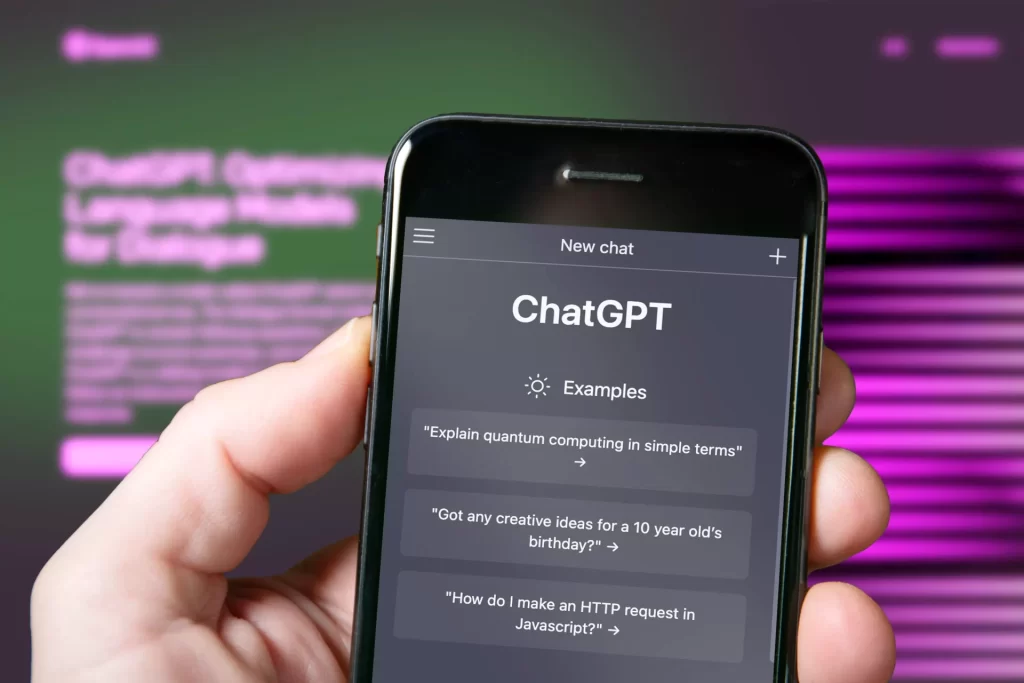
The rapid release of ChatGPT sparked a frenetic race in the AI industry, with companies competing to launch similar products. OpenAI conducted extensive testing before releasing new systems, ensuring safety and reliability. Altman’s ability to cultivate relationships with influential partners, particularly Microsoft, played a crucial role in OpenAI’s meteoric rise. He convinced Microsoft CEO Satya Nadella to invest billions into what was initially a research project, showcasing his talent for selling a vision and rallying support.
Key Innovations
GPT Series: One of OpenAI’s most significant achievements has been the development of the Generative Pre-trained Transformer (GPT) series. Starting with GPT-1 in 2018, these models revolutionized natural language processing. GPT-3, released in June 2020, with 175 billion parameters, showcased unprecedented capabilities in understanding and generating human-like text. GPT-3’s versatility demonstrated the potential of large-scale neural networks, and it became a cornerstone of AI applications worldwide.
DALL-E: Another breakthrough was DALL-E, a model that generates images from textual descriptions. This innovation opened new avenues in creative industries, allowing for the generation of unique visual content based on simple text prompts. DALL-E’s ability to create detailed and imaginative images from textual input highlighted the potential for AI in art and design. The model’s applications range from helping artists and designers brainstorm new concepts to generating personalized content for marketing and entertainment.
Codex: Codex, a descendant of GPT-3, was designed to assist with programming. It powers GitHub Copilot, an AI pair programmer that helps developers write code more efficiently. Codex demonstrated OpenAI’s ability to create tools that bridge the gap between human intent and machine execution, significantly enhancing productivity for software developers. By understanding natural language prompts, Codex can generate code snippets, debug errors, and provide documentation, making programming more accessible and efficient.
Transition to a Cap-Priced Model
In 2019, OpenAI transitioned from a non-profit to a “capped-profit” model, establishing OpenAI LP. This structure allowed the company to attract more significant investments while ensuring that returns were capped, aligning with the mission of benefiting humanity. Microsoft became a key partner, investing $1 billion and later integrating OpenAI’s models into their products. This partnership enabled OpenAI to scale its research and development efforts, leveraging Microsoft’s cloud infrastructure and resources. The capped-profit model also allowed OpenAI to offer competitive salaries and attract top-tier talent, essential for driving innovation.
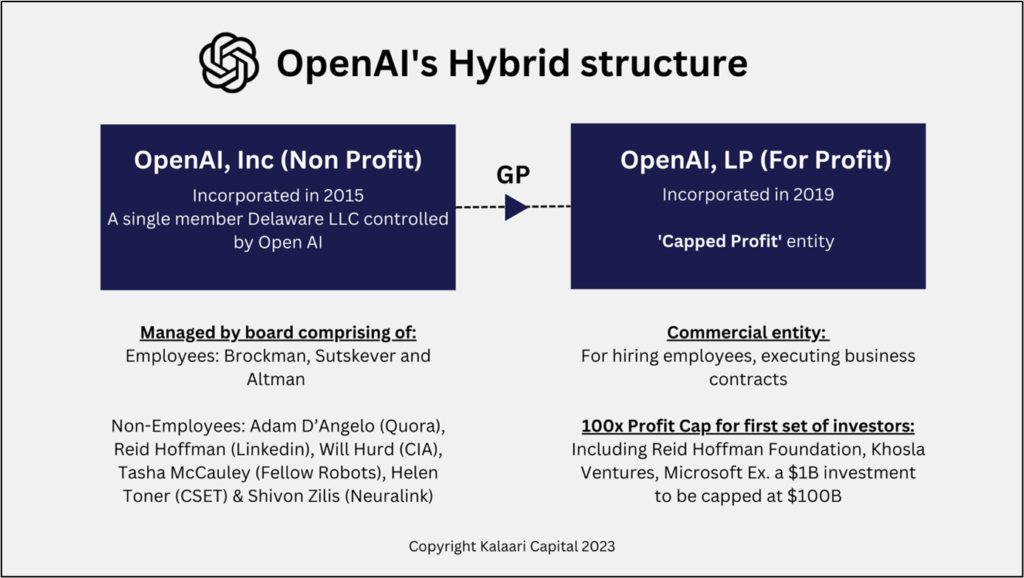
Ethical AI and Safety Measures
Under Altman’s guidance, OpenAI has maintained a strong focus on AI safety and ethics. The company has published extensive research on AI alignment, robustness, and the social implications of AI technologies. OpenAI’s commitment to transparency and responsible AI deployment has set a standard in the industry, encouraging other organizations to prioritize ethical considerations. The company established an external advisory board and collaborated with academic institutions to review and guide its research. OpenAI also developed policies to mitigate the risks of AI misuse, such as restrictions on deploying models for harmful purposes and ongoing monitoring of AI impacts.
Scaling Operations and Impact
OpenAI’s growth is also attributed to its strategic partnerships and open collaborations. By open-sourcing many of its projects and engaging with the broader AI community, OpenAI has fostered a culture of shared knowledge and progress. This approach has accelerated advancements and widened the impact of their innovations. OpenAI’s collaborative efforts include partnerships with academic institutions, tech companies, and research organizations. These collaborations have facilitated the exchange of ideas, resources, and expertise, driving forward the collective understanding of AI.
Challenges and Controversies
Despite its successes, OpenAI has faced challenges and controversies. The sheer power of models like GPT-3 has raised concerns about misinformation, bias, and the potential for misuse. OpenAI has taken these issues seriously, implementing rigorous safety measures and continuously refining their models to mitigate risks. The company has invested in research to understand and reduce biases in AI models, ensuring fairer and more equitable outcomes. Additionally, OpenAI has engaged with policymakers and stakeholders to address ethical concerns and promote responsible AI use.
In November 2023, OpenAI’s board unexpectedly voted to fire Altman, citing concerns about his transparency. The backlash was swift and severe. Over 90% of OpenAI employees threatened to leave unless he was reinstated, and influential investors, including Microsoft, voiced their support for Altman. The incident underscored Altman’s influence and the deep loyalty he commands within the AI community. The board’s concerns included Altman’s management style and communication, but the strong support from employees and external partners highlighted his crucial role in OpenAI’s success.
Networking Superpower
Altman’s extensive network, built over years of investing and building in Silicon Valley, has been a cornerstone of his success. Before OpenAI, he dropped out of Stanford to co-found the social network Loopt and later led the startup incubator Y Combinator. His philosophy of helping others without expecting immediate returns has consistently paid off, cementing his reputation as a key figure in the tech ecosystem.
This network proved invaluable during crises. When Altman was ousted, support from his vast connections helped secure his reinstatement. His investments span over 400 companies, including large stakes in Reddit and partnerships with companies like Apple, which announced ChatGPT integration into its operating system.
Balancing Act: Commercial and Social Missions
OpenAI’s identity has evolved from an outsider with a heroic mission to a dominant player in AI. Balancing the commercial pressures with its foundational social mission has been challenging. Altman has always emphasized the importance of transparency and ethical considerations in AI development. OpenAI’s structure, with a non-profit board overseeing its for-profit arm, reflects this commitment to ethical oversight.
The company continues to innovate, releasing products like the text-to-video generator Sora and GPT-4o, which includes a voice assistant. However, these releases have not been without controversy. For instance, actress Scarlett Johansson criticized OpenAI for using a voice similar to hers without her consent, raising questions about trust and safety.
The Future of OpenAI
The AI sector is incredibly competitive, and the stakes are high. Altman and OpenAI are not just racing against time but also striving to convince the public of their trustworthiness. OpenAI’s journey from a niche research lab to an $86 billion leader is a testament to Altman’s vision and strategic prowess. The company’s future involves staying ahead in the rapidly evolving AI landscape while maintaining its commitment to ethical AI development.
Conclusion
Sam Altman’s journey with OpenAI is a remarkable story of ambition, innovation, and ethical responsibility. From its inception as a research lab to becoming an $86 billion enterprise, OpenAI has continuously pushed the boundaries of AI technology. Altman’s ability to navigate the complex landscape of AI, balancing commercial success with a strong social mission, has positioned him as a pivotal figure in the AI revolution. As OpenAI moves forward, its impact on the world and Altman’s legacy as a visionary leader will undoubtedly continue to shape the future of technology.
Also Read: Unveiling Founding History and Founding Team of ChatGPT
To read more content like this, subscribe to our newsletter

